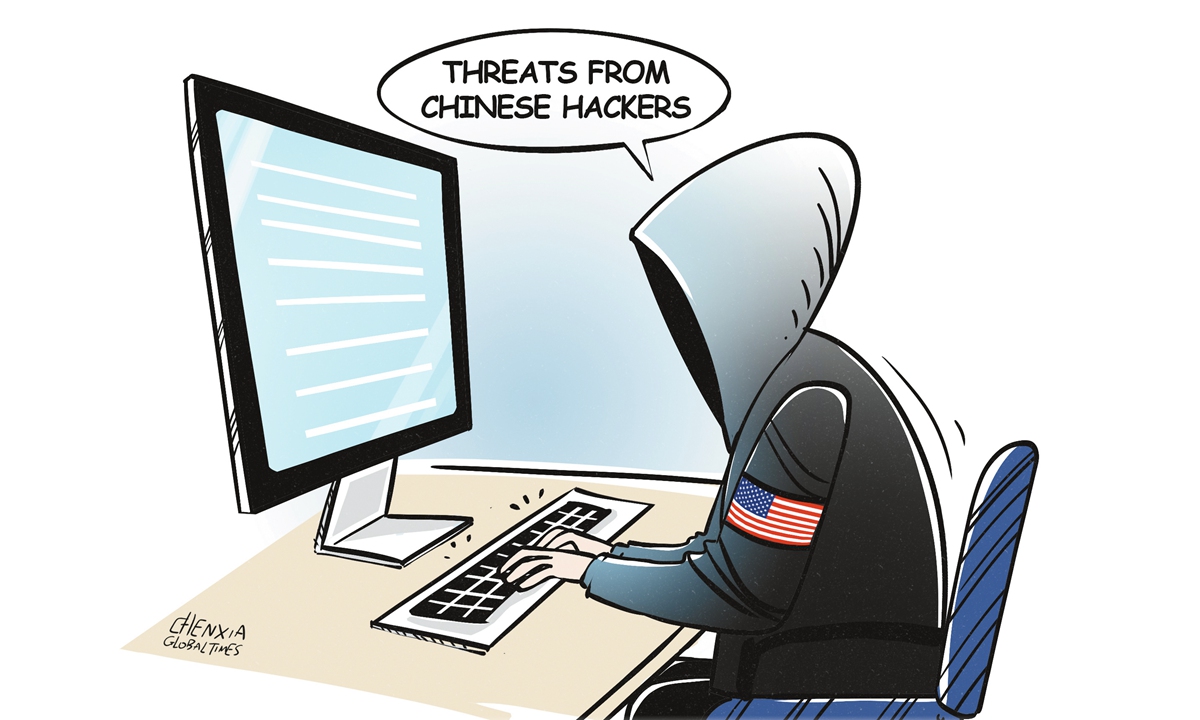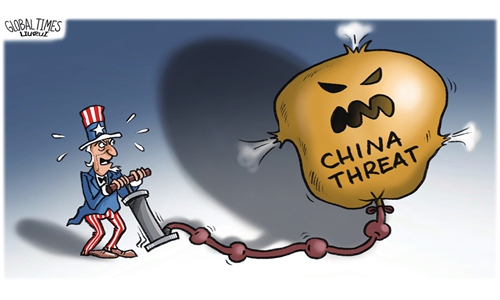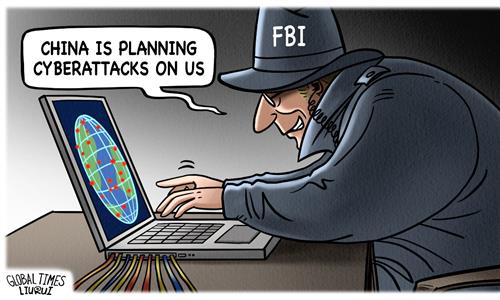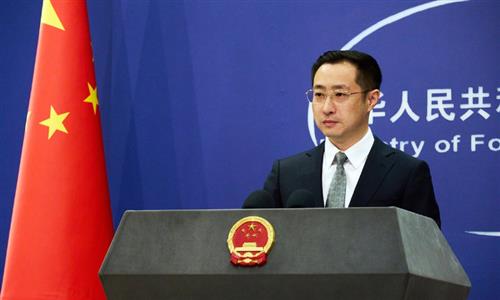
Illustration: Chen Xia/GT
The US is particularly keen on discrediting China, and hyping up the "Chinese hacking threat" has practically become routine. Recently, US media outlets once again "revealed" that Chinese hackers "may have gained access to systems used by federal authorities for court-approved eavesdropping" and "breached at least three major US telecommunications providers." Notably, these accusations lack any concrete evidence to substantiate them. They rely solely on vague terms like "may," "potentially" or "premature," which offer no substantive proof.
We still remember that just a few months ago, the US launched a disinformation and media manipulation campaign under the label "Volt Typhoon," aimed at smearing China's reputation. Now, people cannot help but suspect that the US is fabricating yet another narrative - dubbed "Salt Typhoon" - to falsely accuse China, once again resorting to the unoriginal farce of "a thief crying stop thief" to throw mud at China.
In response to this smear campaign, China's Foreign Ministry said in a statement to Reuters on Sunday that it was not aware of the attack described and said the US had "concocted a false narrative" to "frame" China in the past.
Experts believe that the fictional stories concerning "Chinese hacking threat" in US media, meticulously crafted by US intelligence agencies, serve a simple purpose - to deceive taxpayers and expand Washington's surveillance capabilities.
Shen Yi, director of the Research Center of Cyberspace Governance, Fudan University, believes this exposes a common tactic used by the US - "shooting the arrow and then painting the target around it." US intelligence agencies first create a so-called threat, then spread and exaggerate disinformation to mislead the public in order to achieve their political objectives.
Smearing China over hacking issues is merely a microcosm of the broader campaign by the US to discredit China across various fields. In recent years, the US has seized every opportunity to cast aspersions on China, continuously distorting facts and spreading rumors, thereby worsening China-US relations. At the root of this lies the US' unwillingness to accept China's rise, driven by fears of losing hegemony. In early September, the US House of Representatives even passed a bill allocating $1.6 billion to fund "troll factories," attempting to hype up "China threat," manipulate public opinion and incite anti-China sentiment.
When it comes to hacking, for a long time, the US has been the largest "hacker empire" in the world. The 2013 PRISM scandal fully exposed how Washington uses its powerful technological capabilities to monitor its own citizens and eavesdrop on people around the world, earning it the title of a true "surveillance superpower." China has long been one of the primary victims of US cyberattacks. A research report released by Chinese cybersecurity agencies in July showed that over the course of a year, the total number of cyberattacks by hacker groups supported by US government agencies against the Chinese government, universities, research institutions, large enterprises, and critical infrastructure exceeded 45 million times. Yet, the US often puts on a farcical act of "a thief crying stop thief," continuously claiming that China is hacking its courts, the State Department, and critical infrastructure networks, all while portraying itself as a victim of cyberattacks. Such a hypocritical performance is hardly convincing.
From the Swiss Crypto AG spying scandal to the PRISM scandal and the Stuxnet virus attack on Iran's nuclear facilities, the US' numerous "transgressions" make the narrative of the "Chinese hacking threat" even more absurd. With its long history of misconduct, the US still owes the world an explanation.



